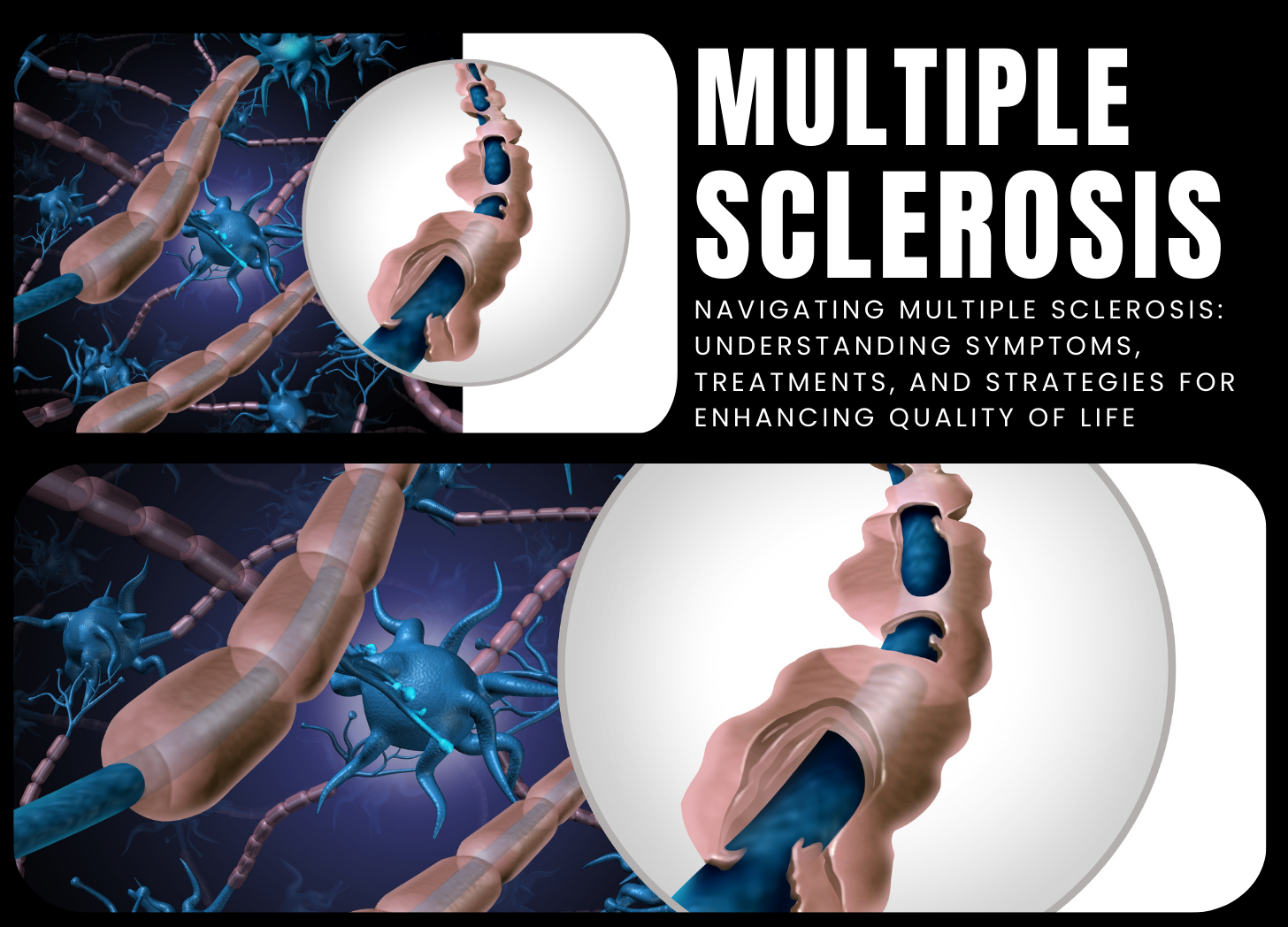Contact Us
Contact Us

Multiple sclerosis (MS) is a chronic autoimmune illness that affects the central nervous system (CNS), including the brain, spinal cord, and optic nerves. MS is distinguished by inflammation, demyelination (damage to the protective myelin coating protecting nerve fibers), and scar tissue formation (sclerosis) in the central nervous system. This injury interrupts the transmission of electrical impulses along the nerves, causing a wide range of symptoms with varying severity and duration.
Multiple sclerosis is not completely understood, although it is thought to be caused by a mix of genetic, environmental, and immunological factors. Genetics, infections, smoking, vitamin D deficiency, and some autoimmune diseases may all raise the risk of getting MS. The immune system wrongly targets the myelin layer, resulting in inflammation and nerve fiber loss in the central nervous system. This damage impairs communication between the brain and the rest of the body, which causes MS symptoms.
Multiple sclerosis symptoms may include fatigue, weakness, numbness or tingling in the limbs, muscle spasms or stiffness, difficulty walking or maintaining balance, vision problems (such as blurred vision, double vision, or loss of vision), tremors, and difficulties with coordination or speech. MS symptoms can vary greatly from person to person and might occur in bouts or relapses separated by periods of remission, making diagnosis and management difficult.
Multiple sclerosis is diagnosed using a medical history, physical examination, neurological testing, and diagnostic imaging procedures such as magnetic resonance imaging (MRI) of the brain and spinal cord to identify areas of inflammation, demyelination, and scar tissue. A lumbar puncture (spinal tap) can be used to examine cerebrospinal fluid for abnormalities such as high amounts of immune cells or proteins.
Treatment for multiple sclerosis attempts to manage symptoms, minimize the frequency and severity of relapses, limit disease progression, and enhance overall quality of life. Corticosteroids, immunomodulators, and disease-modifying treatments (DMTs) may be recommended to reduce inflammation, inhibit the immune system, and protect the CNS from further damage. Symptomatic treatments such as muscle relaxants, physical therapy, occupational therapy, speech therapy, and assistive devices may also be advised to alleviate symptoms and enhance function.
To summarize, multiple sclerosis is a chronic autoimmune disease of the central nervous system marked by inflammation, demyelination, and scar tissue development. While there is currently no cure for MS, early detection and adequate therapy can help control symptoms, limit disease progression, and improve quality of life for those affected by the disease.
References:
1.National Multiple Sclerosis Society. (2022). About Multiple Sclerosis. Retrieved from https://www.nationalmssociety.org/What-is-MS
2. Mayo Clinic. (2022). Multiple Sclerosis. Retrieved from https://www.mayoclinic.org/diseases-conditions/multiple-sclerosis/symptoms-causes/syc-20350269
Post a Comment